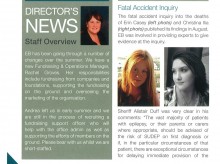An Epileptic Abroad: By Ellie Goodwin

Since 2017, I’ve lived and worked abroad as a teacher, an ESL teacher if we’re going into specifics.
I spent a couple of years living in China, followed by South Korea and am lucky enough to have spent my vacation time travelling around South East and Central Asia. But having epilpesy has presented some challenges on the way, lots of which I hadn’t even anticipated myself. The biggest one that comes to mind is this: epilepsy is still not an acknowledged condition in some regions.
In Chinese, the word for epilepsy is dian xian which translates to ‘madness’. In Korean, gan-jil means ‘mad sickness,’ and in Malay gila babi translates to ‘mad pig disease’. To say I was surprised to find this out is an understatement. The idea that a condition which affects so many is still synonymous with madness was pretty baffling. True, this isn't a widespread opinion across Asia but one exclusive to sporadic pockets of a country. Nonetheless, I felt self-consciousness for my condition; the first time since my teenage years. And with an absence of recognition comes an absence of medication. Having grown up in the UK I’ve been fortunate enough to have the NHS at my disposal, with medication ready for collection less than a week after submitting my prescription. I’d not anticipated the difficulties that I would encounter when I moved. My medication needed to be requested months in advance to account for the time it takes to be imported from Thailand, and the total cost of it all was enough to make my eyes water.
It was one of those inconveniences that fell under the ‘I really don’t need to be dealing with this right now’ list. Relocating to the other side of the world, settling into a new home and job while adjusting to a massive cultural shock is pretty overwhelming. And then there were complications about getting my medication which I had to consider, having naively assumed that the process would be no different to that in the UK.
As many epileptics know, just because I was able to secure medication didn’t mean that my years abroad were seizure free. There are things about the UK I miss when I’m away (Tesco and Nandos being my two guilty pleasures). But the biggest is the support that comes whenever I have a seizure.
My friends and family know what I need after I have a seizure (a pack of Oreos, binging on a TV series, laying in bed in a dark room, or just some nonsensical conversation to keep me distracted). Abroad, I live alone. When I have a seizure in my apartment, there’s nobody there when I come round. I’m left to deal with the aftermath by myself, craving nothing more than to be surrounded by my safety net of people, and saddened that they’re in a different continent to me.
A seizure outside of my apartment is a daunting prospect, too. Like I said, the condition is still stigmatised in places and I couldn’t help but wonder what the reaction would be if I were to suddenly drop while walking down the street.
Living with epilepsy is a little like having a constant companion who is deliberately set on causing the most inconvenience possible. Be it adding extra challenges to what should be easy jobs, nudging you into moods like exhaustion and anger, having to go through the hassle of trying out different medications and dosages to find the right fit, or being on the receiving end of ignorant and hurtful comments. In the saddest cases, an epilepsy diagnosis can lead to a debilitating lifestyle or a tragic death. The latter is a fear that many epileptics have had to confront and find a way to come to terms with.
Read more of Ellie's blogs, Epileptic Abroad

